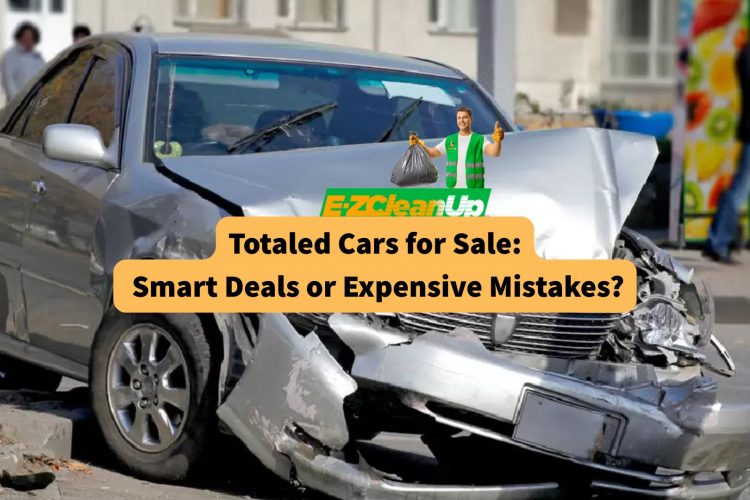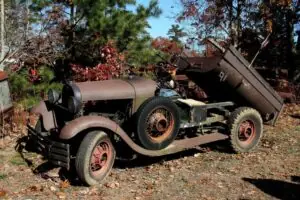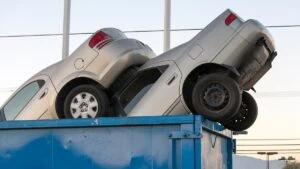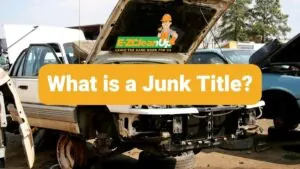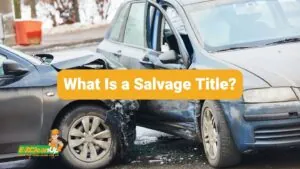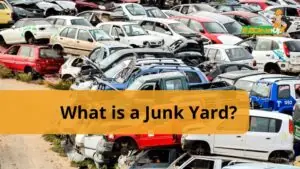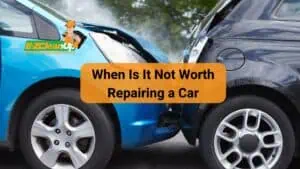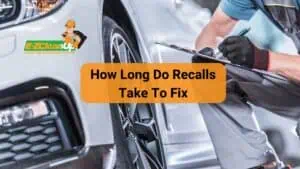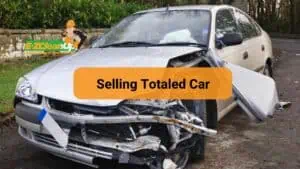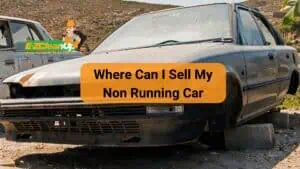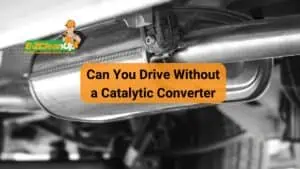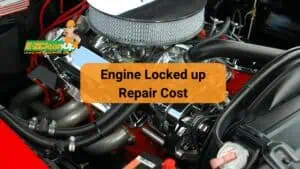Buying a totaled car can save you money upfront, but it often comes with hidden risks—like costly repairs, limited insurance coverage, and even lower resale value. To help prevent any mistakes, let’s break down whether these deals are truly smart buys or something that you’ll regret later.
To know more about totaled cars for sale, you can check this guide to help you make a better decision before purchasing one.
#1 What Exactly Does a Totaled Car Mean?
When a car is “totaled,” it doesn’t just mean it was in a bad crash. It means the damage is so serious that fixing it would cost more than the car is worth.
How Does a Car Get Totaled?
Insurance companies decide if a car is totaled after an accident, fire, flood, or other major damage. They look at two things:
- Repair Costs – How much it would cost to fix the car.
- Car’s Value – How much the car was worth before it was damaged.
If the repairs cost more than the car is worth—or even close to it—the car is declared a “total loss.”
Simple Example
Let’s say your car is worth $5,000. If repairs after a crash would cost around $6,000, the insurance company will likely total it. That’s because it doesn’t make sense to spend more fixing the car than it’s worth.
#2 How the Appeal of a Bargain Makes People Buy Totaled Cars
Totaled cars attract buyers for one big reason—they’re cheap. These vehicles usually sell for 20% to 40% less than similar cars with clean titles. For people on a tight budget, that kind of discount can make a car affordable that would otherwise be out of reach.
Why Do People Take the Risk?
- Big Savings – The low price is the biggest reason. If you can do repairs yourself or know someone who can, you might save thousands compared to buying a used car with no damage.
- Minor Damage, Major Deal – Some cars are totaled for cosmetic issues like hail damage or because they were stolen and later recovered. They might still run fine and only need minor fixes.
- Parts and Projects – Salvage cars are great for people who need parts or want a project car to work on. They’re often used by hobbyists, students, or mechanics to learn and build skills.
- Rare Finds – Car fans sometimes look for hard-to-find or exotic models. Even with a salvage title, these cars can offer a way to own something special without the huge price tag.
#3 What Are the Risks of Buying a Totaled Vehicle?
Buying a totaled car might seem like a way to save money, but it comes with serious risks. Here’s what you need to know before making a decision.
1. Safety Problems
Even if the car looks fine, it may have hidden damage that affects how safe it is. The frame could be weak, airbags might not work right, or the electrical system could fail—especially in cars damaged by floods or fires.
2. Expensive Surprises
Some problems don’t show up right away. Once you start repairs, you might find issues like rust, frame damage, or wiring problems. Shops that fix salvage cars often use cheap parts, which may not last long or work well.
3. Hard to Sell Later
Cars with salvage or rebuilt titles lose value—sometimes up to 60%. Many buyers avoid them, and dealerships may not accept them as trade-ins. That makes it harder to sell or get a fair price in the future.
4. Insurance Headaches
Some insurance companies won’t fully cover salvage cars or might not insure them at all. Others offer only limited coverage, which means you could be stuck with big repair bills if something goes wrong.
5. Trouble with Titles and Registration
In many states, salvage cars need special inspections before they can be legally driven. Some places won’t let you register them at all, so check your local laws before buying.
6. Risk of Scams
Some sellers try to hide how badly a car was damaged or use tricks to clean up a salvage title. If you’re not careful, you could end up with a car that’s unsafe or costs more to fix than it’s worth.
#4 How to Tell the Difference Between a Totaled and a Repairable Car
The main difference is how much it costs to fix the car compared to how much it was worth before the accident.
Signs Your Car Might be Totaled
- It’s not safe to drive.
- Windows or the view are blocked.
- Repairs cost almost as much as the car is worth.
- Your insurance adjuster says it’s totaled.
What Makes a Car Repairable?
- The cost to fix it is less than what the car is worth.
- Damage is mostly cosmetic or minor.
- It can be fixed safely without spending too much.
#5 Tips to Help You Inspect a Totaled Car Before Buying
Going for totaled cars for sale can help save you money, but you need to be careful. Here’s how to inspect it the smart way:
Check the VIN and Title
Make sure the VIN matches all the documents. The title should clearly say “salvage” or “rebuilt.” And use a vehicle history website to check for past crashes or damage.
Ask for Repair Records
Get all repair paperwork—like parts receipts and mechanic reports. And also, repairs using original parts (OEM) are usually better.
Inspect Important Parts
Check the engine, frame, transmission, brakes, airbags, and suspension. These are key to safety and performance.
Look for Bad Repairs
You need to also watch out for uneven body panels, weird paint, rust, or things that don’t open and close properly. As these could mean cheap or rushed work.
Hire a Mechanic
Bring in a professional who knows salvage cars. Because they can spot hidden issues you might miss.
Test Safety Features
Make sure airbags, seat belts, and other safety systems work. While in some places, these must pass inspection before the car can be driven.
Know Your State’s Rules
Each state has different rules for salvage cars. Make sure it has passed all required inspections and has the right paperwork.
Take It for a Drive
Drive the car to see how it feels. And listen for strange noises or check if it handles oddly.
Ask for a Safety Report
Some places require a safety report after repairs. This shows what was fixed and if the car is road-ready.
#6 Why a Totaled Car Might Be a Smart Investment
A totaled car can be a good deal, and here’s why:
- Saves Money – If you can fix the car yourself or know someone who can, you can save a lot compared to buying a regular used car.
- Chance to Restore or Customize – Car lovers can enjoy fixing up a totaled car. You can add upgrades or customize it to make the car more valuable once it’s repaired.
- Get Rare or Classic Cars Cheap – Sometimes, rare or old cars are totaled because they aren’t worth much before repairs. This lets you buy unique cars at a low price and restore them.
- Use for Parts or Sell Pieces – Even if you don’t want to drive the car, it can be worth the money for parts. You can sell or use the parts, which might be profitable.
- Warranty Options Available – Some companies offer special warranties for rebuilt salvage cars, so it can protect you from unexpected repair costs.
- Keep the Car and Save on Insurance – If your car is totaled, you might be able to pay the insurance company the salvage value and keep the car to fix it yourself. This can save you money instead of buying a new car.
#7 FAQs
Can a totaled car be sold later?
Yes, but selling a totaled car can be harder. Buyers will expect a lower price, and you must disclose the salvage or rebuilt title status.
How do I register a totaled car?
Registration rules differ by state. Usually, you must pass a salvage or rebuilt vehicle inspection and provide all required paperwork before registering the car.
Can I insure a totaled car for full coverage?
Full coverage insurance is rare for salvage-title cars. Most insurers only offer limited coverage or exclude collision and comprehensive policies.
#8 The Bottom Line – Smart Bargains or Costly Risks?
Buying a totaled car can be a fantastic opportunity. These vehicles often come at great prices and offer exciting chances to restore, customize, or use for valuable parts. They’re perfect for car enthusiasts, savvy buyers, and anyone looking for a budget-friendly option.
With the right research, a careful inspection, and some patience, a totaled car can turn into a rewarding project or a smart investment. Above all, a totaled car is a chance to find a hidden gem that fits your goals and budget.

